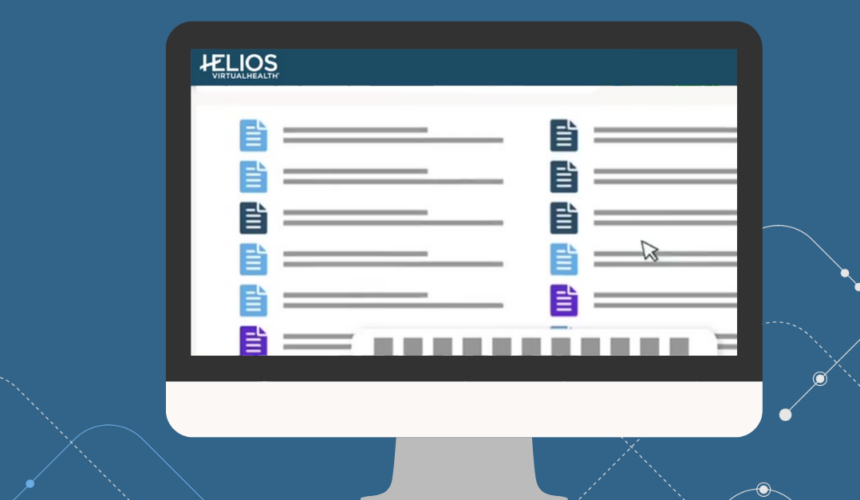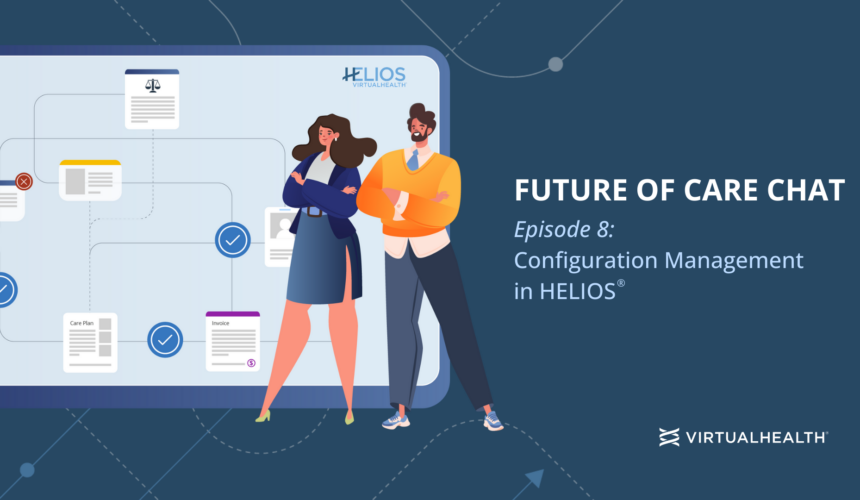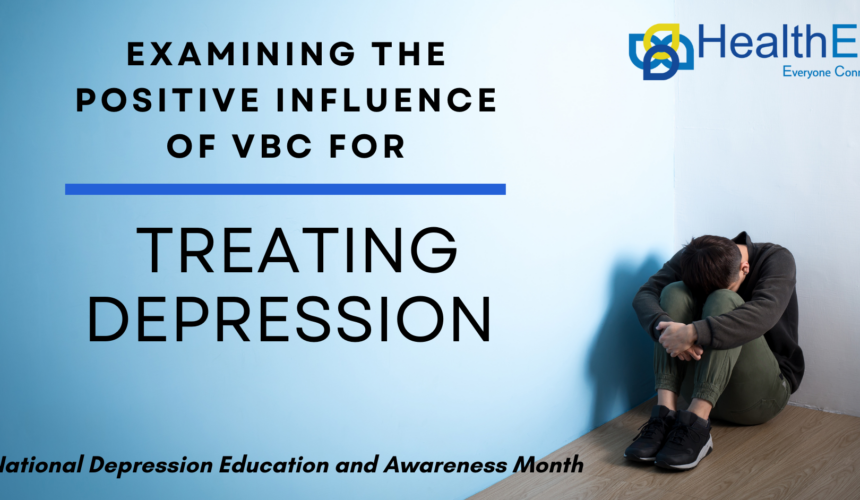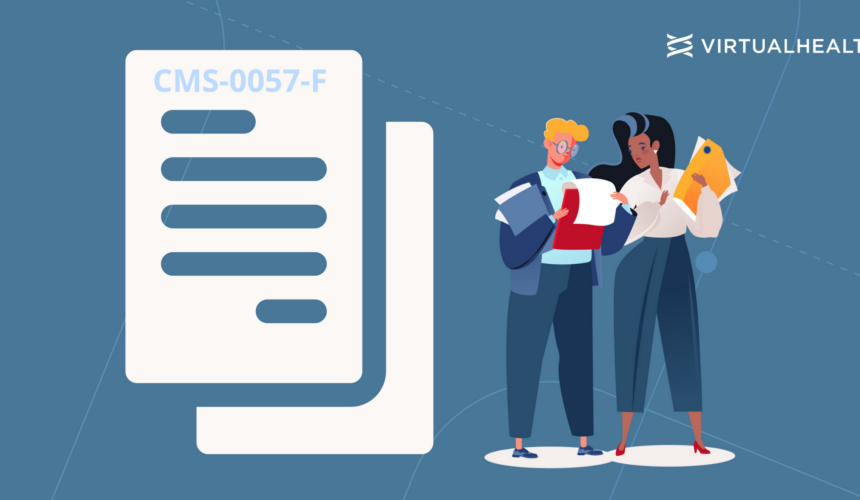For healthcare organizations, CMS-0057-F outlines the modern healthcare system and offers opportunities to improve care and utilization management In the last couple of years, the Centers for Medicare & Medicaid Services (CMS) have been making strides to increase health data exchange, as well as improve and expand access to care. On January 17, CMS finalized its interoperability and prior authorization rule. The rule applies to Medicare Advantage (MA) organizations, Medicaid and the Children’s Health Insurance Program (CHIP) fee-for-service (FFS) programs, Medicaid managed care plans, CHIP managed care entities, and issuers of Qualified Health Plans (QHPs) offered on the Federally-Facilitated Exchanges...

How to Achieve Healthcare Data Interoperability Without Overtaxing IT Teams
For healthcare payors and organizations, the HL7® FHIR® (Fast Healthcare Interoperability Resources 1) standard is crucial to data interoperability efforts. This standard is designed to improve data interoperability by providing a standardized way to exchange and integrate health information from multiple sources stored in disparate systems. And as healthcare payors look for ways to enable or improve collaboration across different care teams and settings, interoperable data will be paramount. The key to accurate and expedient value-based care, data interoperability can make or break a payor’s ability to properly serve its population. Burdens on IT Team Make Data Interoperability a Challenge...

Understanding Whole-Person Care: What It Is, How to Deliver It
In the last few years, many payors have worked hard to implement a whole-person care approach or whole-person integrated care model. But what does that even mean? What is the definition of whole-person care? How is whole-person care delivered today? And what are the challenges in whole-person care today? Below we dive into all three for a quick understanding of modern-day whole-person care. What is Whole-Person Care? Whole-person care is a framework for care delivery. It involves an approach where healthcare payors and practitioners consider the well-being of a person collectively. This means a care model that focuses on optimal...

How Rule-Driven Assessments Help Streamline Care Management
Assessments are a critical component of care and case management programs. Assessments help care and case managers quickly identify the health and social needs of members, flag at-risk individuals, and help teams prioritize and effectively handle their caseloads When assessment response data is incorporated into member views and care management workflows, this can help automate the generation of the next best actions (task assignment, outreach, etc.). Below we quickly look at how assessments, that incorporate rules, can help streamline care management, reduce administrative burden, and prevent costly events such as hospital readmissions. Using Rule-Driven Assessment in Care and Case Management...

Future of Care Chat – Episode 8: Talking Configuration Management in HELIOS
HELIOS is the most configurable platform for healthcare payors with 90% configurability right out of the box. You may have heard us say this before, but if not, “HELIOS is the most configurable and flexible solution for healthcare management.” But what does that even mean? HELIOS comes 90% configurable out-of-the-box, and that means clients on HELIOS can tweak it to meet their specific program needs. This makes it easier to drive efficiencies and productivity gains for care management, disease management, population health, utilization management, and more. In HELIOS clients can configure many things including workflows, assessments, task assignment, rules, access...

6 Healthcare Trends to Watch in 2024 and How They’ll Impact Care Management
As a new year approaches, the U.S. healthcare industry faces converging factors that signal some significant upcoming changes. An estimated 60% of adults have at least one chronic disease, and 40% suffer from two or more, straining healthcare resources. In 2023, life expectancy declined to 76.4 years, due in part to social inequities and to a healthcare system that has long prioritized cure over prevention. Many providers are still generally operating under a fee-for-service model where compensation is based on service volume instead of the value and quality of the provided care Evolutions in technology for healthcare services have increased...

Interoperability in Value-Based Care: Leveraging FHIR-compatible Data for Seamless Care Coordination and Improved Population Health
New FHIR® data interoperability application helps payers quickly transform and manage critical data for organization-wide sharing, visibility, and care team us Data interoperability is a hot agenda item for many healthcare organizations. 1. Stakeholders across the board – providers, payers, patients, and regulatory bodies – are recognizing the need for a frictionless data ecosystem that allows quick, accurate exchange of patient information at the point of care. Improving care coordination and outcomes and reducing overutilization depends on it. 2. Data silos are becoming even more problematic. Currently, critical patient data is often stored in multiple systems and formats, each with...

Track 3 of the Making Care Primary Model: Enable and Optimize Continuous Care Coordination
Track 3: Using Quality Improvement Frameworks to Optimize Care Delivery and Gain Financial Benefits In our last few blogs, we’ve been looking at CMS’ new Making Care Primary (MCP) model, which aims to have Medicaid advance value-based care at the primary care level through better coordination of care. Participating in MCP is voluntary, but the implication is clear: CMS isn’t deviating from a path toward value-based care anytime soon, and aligning primary care delivery with the model’s objectives can only help payers prepare for a future of healthcare that prioritizes member outcomes, quality of service, and caring for the whole...

The Positive Impact of Employing Value-based Care for Treating Depression
While the fear, uncertainty, and isolation of the COVID-19 pandemic have practically disappeared, the mental health crisis sparked by these issues have not been so easily erased. Moreover, the number of people who need mental and behavioral health services continues to surge.

Moving to Value-based Care in a Post-Pandemic World
“We shall have no better conditions in the future if we are satisfied with all those which we have at present.” ― Thomas A. Edison


